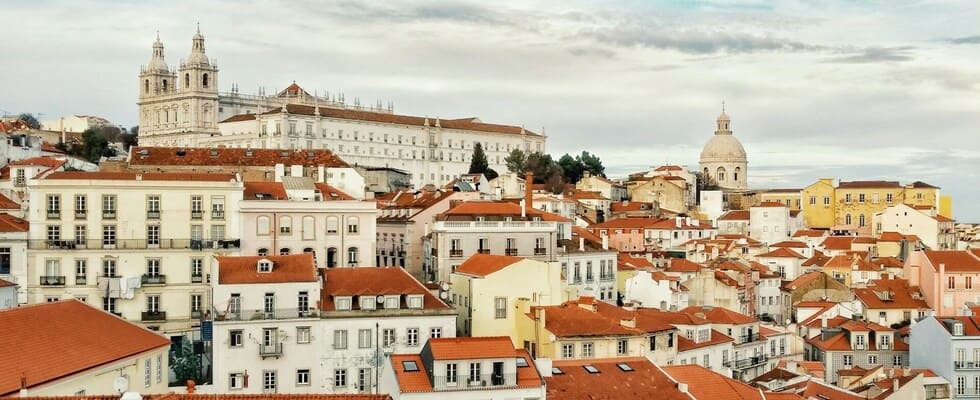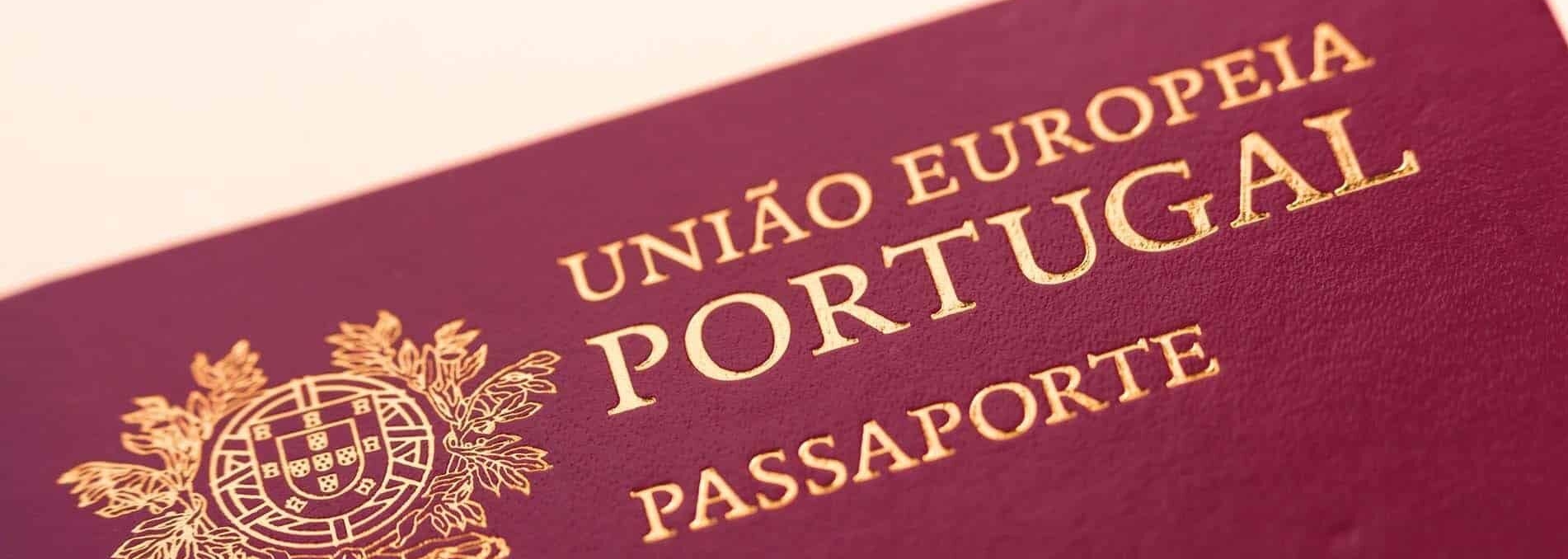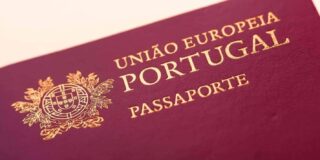The D7 Visa in Portugal is a popular residency visa option designed for non-EU citizens who want to retire in Portugal.
This visa is often called a “Retirement Visa” or “Passive Income Visa” because it is primarily aimed at retirees and other expats who can demonstrate sufficient passive income or financial means to support themselves during their time in Portugal.
In this article, we’ll take a closer look at:
- Benefits of the D7 Visa
- Portugal D7 Visa criteria
- D7 Visa Required Documents
- How to apply for the D7 Visa
What is the D7 Visa?

The D7 Visa is a residency option tailored for non-EU citizens who can demonstrate financial self-sufficiency. It’s particularly attractive for retirees or individuals with stable income sources such as pensions, rental income, or investment returns.
To apply for the D7 Visa, you must prove you have sufficient financial means to support yourself without relying on Portuguese employment. The required income must meet at least the equivalent of Portugal’s minimum wage, with additional funds needed if the applicant brings dependents.
Alongside proof of income, you must also secure accommodation in Portugal, which could be through a rental agreement or property ownership. Health insurance is mandatory, ensuring access to healthcare in Portugal, and a clean criminal record is essential to demonstrate good character.
Once approved, the D7 Visa initially grants a two-year residency permit, renewable for additional three-year periods. This visa allows you to live, study, and work in Portugal, though its primary design is for those who don’t plan to engage in active employment.
After maintaining residency for five years, you can apply for permanent residency or Portuguese citizenship, provided you meet specific requirements. These include proof of basic Portuguese language skills and integration into the local community.
Benefits of the D7 Visa

The D7 Visa provides many reasons to retire in Portugal, making it a popular choice for residency in Portugal. This visa allows individuals to live in Portugal without the stress of needing local employment while also offering pathways to long-term residency and eventual citizenship.
Legal residency in Portugal
The D7 Visa allows non-EU citizens to live legally in Portugal, providing a pathway to integrate into one of Europe’s most desirable countries.
Pathway to permanent residency or citizenship
After five years of continuous residence, D7 Visa holders can apply for permanent residency or Portuguese citizenship. Citizenship grants access to an EU passport and the ability to live, work, and travel freely across all EU countries.
Freedom to travel within the Schengen Area
D7 Visa holders enjoy visa-free travel across the Schengen Zone, comprising 29 European countries, for up to 90 days in any 180-day period.
Access to public services
Residency through the D7 Visa grants access to Portugal’s public healthcare and education systems, ensuring quality services for residents and their families.
Family reunification
The visa allows applicants to bring their immediate family members, such as a spouse, dependent children, and even dependent parents. Family members gain the same residency benefits as the primary applicant.
No active employment requirement
Unlike some other visas, the D7 does not require the holder to work in Portugal. Instead, it’s designed for those with stable passive incomes, such as retirees, digital nomads, or investors.
Lower cost of living
Portugal is known for its affordable lifestyle compared to other European countries. D7 Visa holders benefit from living in a country with high-quality healthcare, excellent public infrastructure, and a reasonable cost of living.
Portugal D7 Visa Requirements
To apply for the D7 Visa, you must meet several requirements and have a few documents in hand for the application. The most important thing is to prove that you have sufficient financial means to support yourself.
Criminal record certificate
You must provide a criminal record certificate to apply for the Portugal D7 Visa. For US citizens, this involves obtaining a criminal background check similar to one issued by the FBI.
Portuguese immigration typically favors applicants with a clean criminal record, which means no convictions for crimes that carry a prison sentence of more than one year.
In certain cases, applicants with criminal records may still be eligible for the visa, so it’s advisable to consult an immigration lawyer for specific guidance.
Get a NIF number
Securing a Portugal tax identification number (NIF) is essential for living in Portugal, as it allows you to engage in various fiscal activities. You can authorize someone to obtain this number before your arrival. Each individual is assigned a unique, nine-digit NIF for tax purposes.
The process for obtaining an NIF varies based on your residency status:
Residents: You can apply at your local tax office (Finanças) or citizen shop (Loja do Cidadão). Check if an appointment is necessary, as some offices have long lines.
Non-residents: You must appoint a fiscal representative to apply on your behalf.
Opening a Portuguese bank account
Once you have your NIF, you can open a Portuguese bank account, which simplifies transactions and helps avoid currency exchange fees.
If you are a non-resident with an NIF, banks like ActivoBank, Banco N26, and Millenium BCP allow you to open accounts online. However, you often need a video call to verify your identity.
Proof of sufficient passive income
Meeting the minimum income requirement is crucial for the Portugal D7 Visa. You must demonstrate a stable and regular passive income that is at least equivalent to the Portuguese minimum wage, which is €870.00.
This income can come from various sources, such as:
- Social Security benefits (Pensions)
- Rental income
- Dividends
- Transferable equity
- Intellectual property
The more passive income you can demonstrate, the smoother the application process will be, as it confirms your ability to support yourself in Portugal without needing local employment.
According to Portuguese law, it’s advisable to maintain a Portuguese bank statement that shows a minimum balance of €10,440 during your two-year application period. This balance increases if you have family members:
- An extra 50 percent for a spouse or any family member over 18.
- An extra 30 percent for each child under 18.
For instance, a family of four with two adults and two minors must maintain at least €41,488.00 in their Portuguese bank account during the family reunification period.
Travel and health insurance
Applicants for the Portugal D7 Visa are required to have travel insurance when submitting their visa application. Additionally, they must obtain health insurance coverage by the time of their AIMA appointment, ensuring they are covered while residing in Portugal during the application process.
There are several private insurance plans available in Portugal that can be directly deducted from your newly opened Portuguese bank account.
After relocating to Portugal, you will have the option to enroll in the Portuguese public health system (SNS), which can be beneficial for renewing your residence permit later.
Maintain minimum residency
Once you receive your Portugal residency permit, the Portugal D7 visa minimum stay is at least 16 months in Portugal during the first two years. After this initial period, you can renew your permit for an additional three years.
If you maintain your residency in Portugal for five years, you can apply for permanent residency and subsequently pursue Portuguese citizenship. It is also essential to have valid health insurance coverage throughout your stay.
Portugal D7 Visa Required Documents

To accompany your D7 application, there are a few necessary documents to secure your residency.
- Completed Portugal D7 Visa application form
- Valid passport (your passport needs to have an expiry date at least three months later than the duration of your stay in Portugal, and it must have at least two blank pages)
- Two passport photos (passport-sized)
- Proof of regular passive income
- Proof of adequate accommodation (it can be a 12-month lease or a property purchase agreement)
- Clean criminal record background check
- Valid travel insurance with health coverage
- Six months of bank statements
- Portuguese tax number (NIF)
- Previous year’s tax statement
- Medical insurance
How to Apply for the D7 Visa

To apply for your Portugal D7 Visa, you’ll need to start the process at the Portuguese Consulate in your home country. Here’s a simple overview of the steps involved:
- Schedule an appointment: Book a time to submit your visa application and all required documents. In some countries, this is done through VFS Global.
- Pay the application fee: Pay the necessary fee when you submit your application.
- Wait for review: The review period can take a few weeks to several months. This timeline depends on the Portuguese Consulate, which may request more information during this time.
- Receive temporary residence visa: Once approved, you’ll get a temporary residence visa to enter Portugal.
- Attend your AIMA appointment: Within four months of your arrival, you must schedule an appointment with AIMA for an interview and biometric data collection.
- Get your temporary residence permit: After the appointment, you’ll receive a temporary residence permit valid for two years, which can be renewed.
- Apply for permanent residency or citizenship: If you meet the necessary criteria, you can apply for a permanent residency permit or Portuguese citizenship after five years of legal residency.
Portugal D7 Visa Cost

The Portugal D7 Visa is a more affordable option compared to programs like the Portugal Golden Visa, which requires a significant investment starting at €200,000. The D7 Visa, however, is intended for those with a stable passive income.
Here’s a breakdown of the processing fees:
- Entry visa application: Approximately €80 at the Portuguese consulate in your home country
. - Resident permit fee: Around €170 for submission and receipt from the AIMA in Portugal
. - AIMA appointment fee: About €156
. - Portugal D7 Visa application fee: Approximately €90
. - Residence permit fee: Around €160
.
Fees may change according to the Portuguese immigration authorities.
Tax Considerations for D7 Holders

A holder of the Portugal D7 Visa must establish tax residency in Portugal by spending more than 183 days in the country each fiscal year.
As a tax resident, you can take advantage of the Non-Habitual Tax (NHR) Regime, which offers generous benefits related to your global income. This program provides tax-free incentives on certain categories for up to ten years if you register with an address in Portugal.
While the NHR has ended, people who meet specific criteria can still qualify for the regime. However, Portugal’s updated tax regime, the Tax Incentive for Scientific Research and Innovation (IFICI), is set to come into force in 2025.
Non-resident foreigners in Portugal are subject to a flat tax rate on all taxable income earned within the country. This tax rate is 25 percent and applies to all annual income sourced from Portugal.
Additionally, non-residents must pay a flat rate on income derived from interest or dividends. For example, if you earned €50,000 in Portugal during 2023, you would owe €12,500 in taxes. It’s important to note that some types of income, such as capital gains from selling shares, may be exempt from this tax rate according to the tax laws.
Personal income tax rates (IRS) apply to the incomes of Portuguese residents and non-residents currently working or employed.
Tax is automatically deducted from pay slips, but you must complete an annual tax return. Your income tax rates are determined by calculating your taxable income earned and the corresponding tax rate and removing any legal deductions (e.g., education or health-related expenses).
IRS is considered individual income tax and is filed individually, but couples and civil partnerships can opt to file jointly. In this case, tax rates are charged on the total taxable income of the household members.
The Portugal tax rates for individuals range from 14.5 percent to 48 percent and are divided into six categories:
- Employment income
- Self-employment income
- Investment income
- Rental income from properties let in Portugal
- Capital gains tax, calculated from selling properties, assets, or shares
- Pensions in Portugal, including private pension plans
Getting Portuguese Citizenship Through the Portugal D7 Visa

In the first two years after obtaining your residency visa, you must live in Portugal for a minimum of 12 to 16 months. After this initial period, you are required to spend at least 28 months in the country every three years.
There may be exceptions for work-related reasons or other specific situations. In these cases, you must inform AIMA of your absence before leaving and provide an explanation. Additionally, you may qualify for an exemption if you can demonstrate residency in your home country while abroad, supported by professional, business, social, or cultural activities.
If you plan to be away for more than six consecutive months or eight non-consecutive months, it is advisable to notify AIMA in advance.
Once you’ve established your residency with the D7 Visa, you can work towards obtaining Portuguese citizenship. Here’s what you need to know:
- Residency duration: After five years of holding your D7 residency, you are eligible to apply for citizenship. Ensure you’ve adhered to the residency requirements outlined earlier, including spending time in Portugal.
- Language proficiency: To demonstrate your integration into the country, you’ll need to pass a basic Portuguese language test.
- Clean criminal record: It’s important to maintain a clean criminal record throughout your residency. You’ll need to provide documentation proving your good standing in both Portugal and your home country.
- Application process: Begin gathering the necessary documents for your citizenship application, such as proof of residency and evidence of language proficiency.
- Submit your application: Follow the application process through the appropriate government channels to ensure a smooth transition from residency to citizenship.
Can I become a Portuguese Citizen with a D7 Visa?
Yes, you can. The D7 Visa offers a route to Portuguese citizenship. After five years of continuous legal residency in Portugal under the D7 Visa, you can apply for either permanent residency or citizenship. To obtain citizenship, you will need to meet additional requirements, such as demonstrating basic knowledge of the Portuguese language and showing integration into the community.
Is Portugal a Good Place for Retirement?
Absolutely. Portugal is consistently ranked as one of the best places in the world for retirees due to its affordable cost of living, mild climate, high-quality healthcare, and welcoming culture. Coastal areas like the Algarve are particularly popular among retirees for their scenic beauty and relaxed lifestyle.
Is Portugal Expensive?
Portugal is relatively affordable compared to other Western European countries. While cities like Lisbon and Porto have higher living costs, smaller towns and rural areas are significantly cheaper. Key expenses, such as housing, food, and transportation, are generally lower, making Portugal an excellent option for those seeking a cost-effective yet high-quality lifestyle.
What is NHR?
NHR stands for the Non-Habitual Resident Tax Regime, a program in Portugal designed to attract foreign residents. It offers significant tax benefits for ten years, such as exemptions on foreign income, pensions, or reduced tax rates for certain professions. The NHR ended in 2024 and will be replaced by the Tax Incentive for Scientific Research and Innovation (IFICI).
What is a NIF Number?
A NIF (Número de Identificação Fiscal) is a Portuguese tax identification number required for any financial transaction in Portugal. Whether you’re opening a bank account, signing a rental contract, or paying taxes, a NIF is essential. It’s easy to obtain through the local tax office or with the help of a tax representative.
Can I Live in Portugal as a Crypto Trader?
Yes, Portugal is an excellent place for crypto traders. The country has a crypto-friendly tax regime, with no taxes on crypto gains for individuals. However, if you’re trading crypto as a professional business, you may be subject to taxes. Many crypto traders move to Portugal to benefit from its tax policies and high quality of life.
Who is Eligible for Passive Income Visa in Portugal?
The D7 Visa is available to non-EU/EEA citizens who can demonstrate sufficient passive income or savings to support themselves in Portugal. Eligible applicants typically include retirees, remote workers, investors, and individuals with stable income from sources like pensions, rentals, or dividends.
What is the Disadvantage of a D7 Visa in Portugal?
One potential disadvantage is the residency requirement. You must spend the majority of your time in Portugal, as extended periods outside the country could jeopardize your visa status. Additionally, the application process involves significant paperwork, including proof of financial self-sufficiency, accommodation, and insurance.
What is the Income Requirement for a Retirement Visa in Portugal?
For the D7 Visa, applicants must demonstrate income equivalent to the Portuguese minimum wage (currently around €10,440 per year for one adult). Additional funds are required for dependents: 50 percent for a spouse and 30 percent per child. These amounts are subject to annual updates.
Can You Buy Property in Portugal with a D7 Visa?
Yes, you can and there are no restrictions on foreign nationals buying property in Portugal. The D7 Visa does not restrict property ownership. In fact, owning property in Portugal can strengthen your application by serving as proof of accommodation. However, purchasing property is not a requirement for obtaining the visa; renting a property is sufficient for meeting the accommodation criteria.






